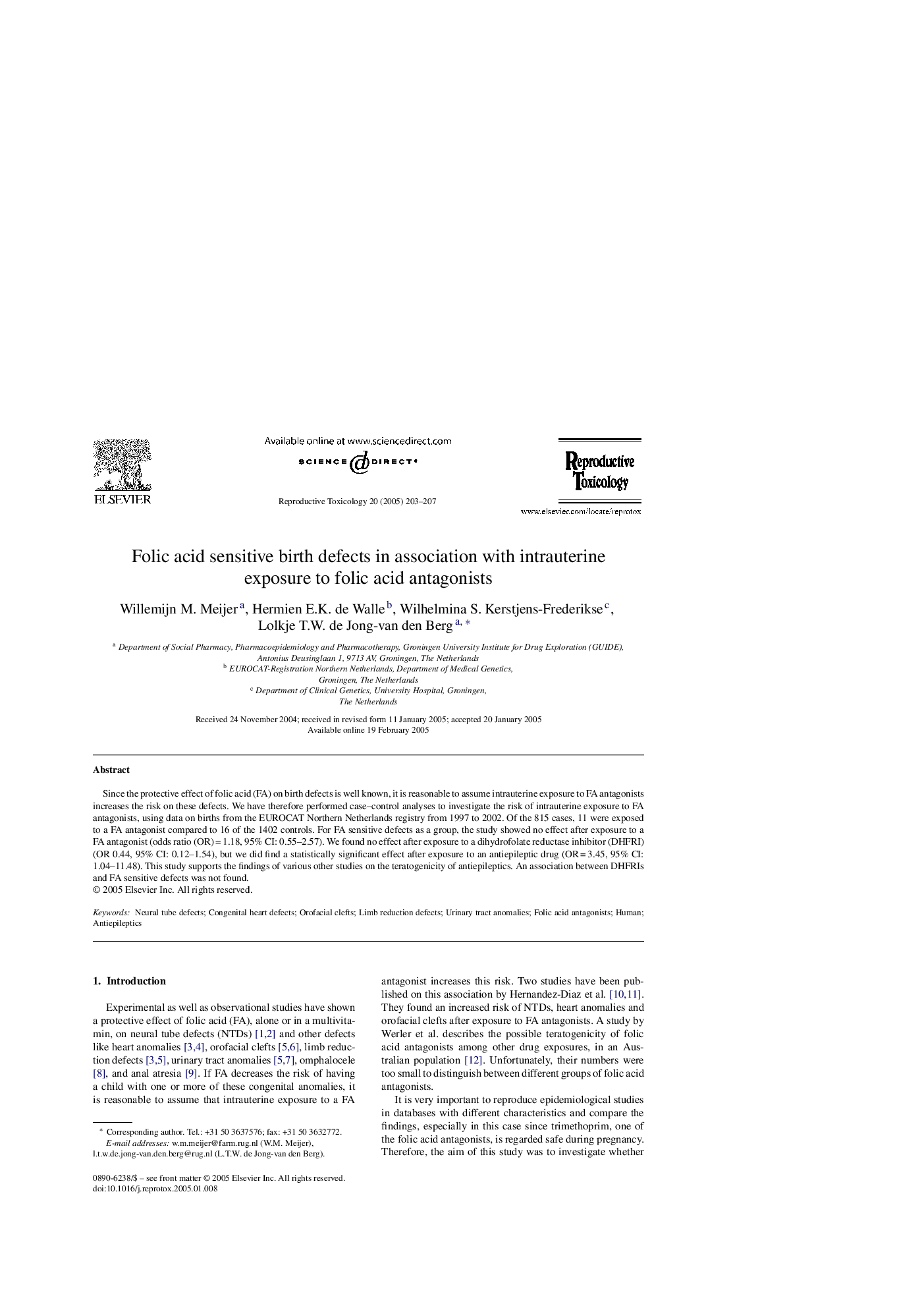| Article ID | Journal | Published Year | Pages | File Type |
|---|---|---|---|---|
| 9034142 | Reproductive Toxicology | 2005 | 5 Pages |
Abstract
Since the protective effect of folic acid (FA) on birth defects is well known, it is reasonable to assume intrauterine exposure to FA antagonists increases the risk on these defects. We have therefore performed case-control analyses to investigate the risk of intrauterine exposure to FA antagonists, using data on births from the EUROCAT Northern Netherlands registry from 1997 to 2002. Of the 815 cases, 11 were exposed to a FA antagonist compared to 16 of the 1402 controls. For FA sensitive defects as a group, the study showed no effect after exposure to a FA antagonist (odds ratio (OR)Â =Â 1.18, 95% CI: 0.55-2.57). We found no effect after exposure to a dihydrofolate reductase inhibitor (DHFRI) (OR 0.44, 95% CI: 0.12-1.54), but we did find a statistically significant effect after exposure to an antiepileptic drug (ORÂ =Â 3.45, 95% CI: 1.04-11.48). This study supports the findings of various other studies on the teratogenicity of antiepileptics. An association between DHFRIs and FA sensitive defects was not found.
Keywords
Related Topics
Life Sciences
Environmental Science
Health, Toxicology and Mutagenesis
Authors
Willemijn M. Meijer, Hermien E.K. de Walle, Wilhelmina S. Kerstjens-Frederikse, Lolkje T.W. de Jong-van den Berg,
